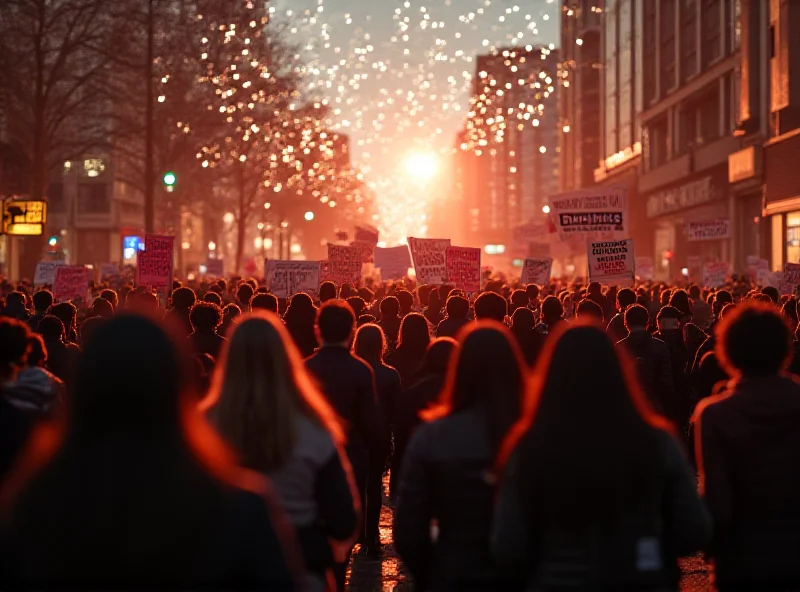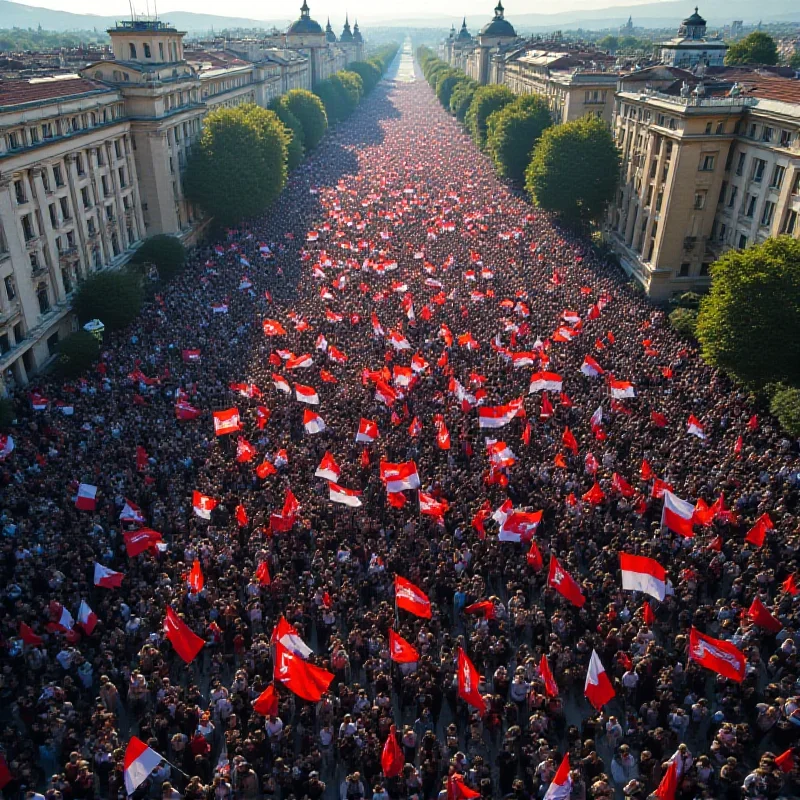Recent events in the Balkans have highlighted both political tensions and growing public dissent. In Bosnia, Milorad Dodik, the pro-Russia Bosnian Serb president, has been sentenced to a year in prison and banned from politics for six years. Meanwhile, across the border in Serbia, student-led protests are gaining momentum, fueled by concerns over corruption and injustice.
Dodik Sentenced for Separatist Actions
Milorad Dodik's sentencing in Sarajevo marks a significant moment in Bosnian politics. He was found guilty of disobeying the top international envoy overseeing peace in the country, a charge stemming from his repeated calls for the Serb-run part of Bosnia to join Serbia. Dodik has stated that he will not accept the conviction and an appeal is expected. This ruling comes at a time of heightened tensions in the fragile Balkan state.

The international community has long been concerned about Dodik's pro-Russia stance and his separatist rhetoric. The conviction underscores the ongoing challenges to maintaining stability and peace in Bosnia. The outcome of the appeal will be closely watched by observers both within the region and internationally.
Student Protests Sweep Serbia
Across the border in Serbia, a wave of student protests is sweeping the nation. Thousands of students and other citizens have taken to the streets in cities like Niš and Belgrade, voicing their anger over alleged corruption and injustice. The protests began in memory of the victims of a recent tragedy in Novi Sad, but have since broadened to encompass a wider range of grievances.
The protesters are demanding accountability and improved governance. Many carry signs proclaiming "We deserve better," reflecting a widespread sense of frustration with the current political climate. The protests in Niš were notably marked by a symbolic welcome with fireworks and laurel wreaths, highlighting the determination and creativity of the student movement.

The Serbian President, Vučić, appears to be attempting to defuse the situation by promising an investigation into corruption. However, it remains to be seen whether this will be enough to satisfy the protesters, who are demanding concrete action and systemic change.

"We are tired of empty promises," said one student protester in Belgrade. "We need real change, not just words."
The situation in both Bosnia and Serbia remains fluid. The coming weeks will be crucial in determining whether Dodik's conviction will be upheld and whether the student protests in Serbia will lead to meaningful reforms.
International Implications
The events in the Balkans are being closely watched by the international community. The political stability of the region is vital for European security, and any escalation of tensions could have far-reaching consequences. The ongoing protests in Serbia, in particular, could have a significant impact on the country's future trajectory.
The Serbian President is counting on continued international support, but the strength and persistence of the student protests may force him to reconsider his approach. The future of Serbia, and indeed the wider Balkan region, hangs in the balance.
